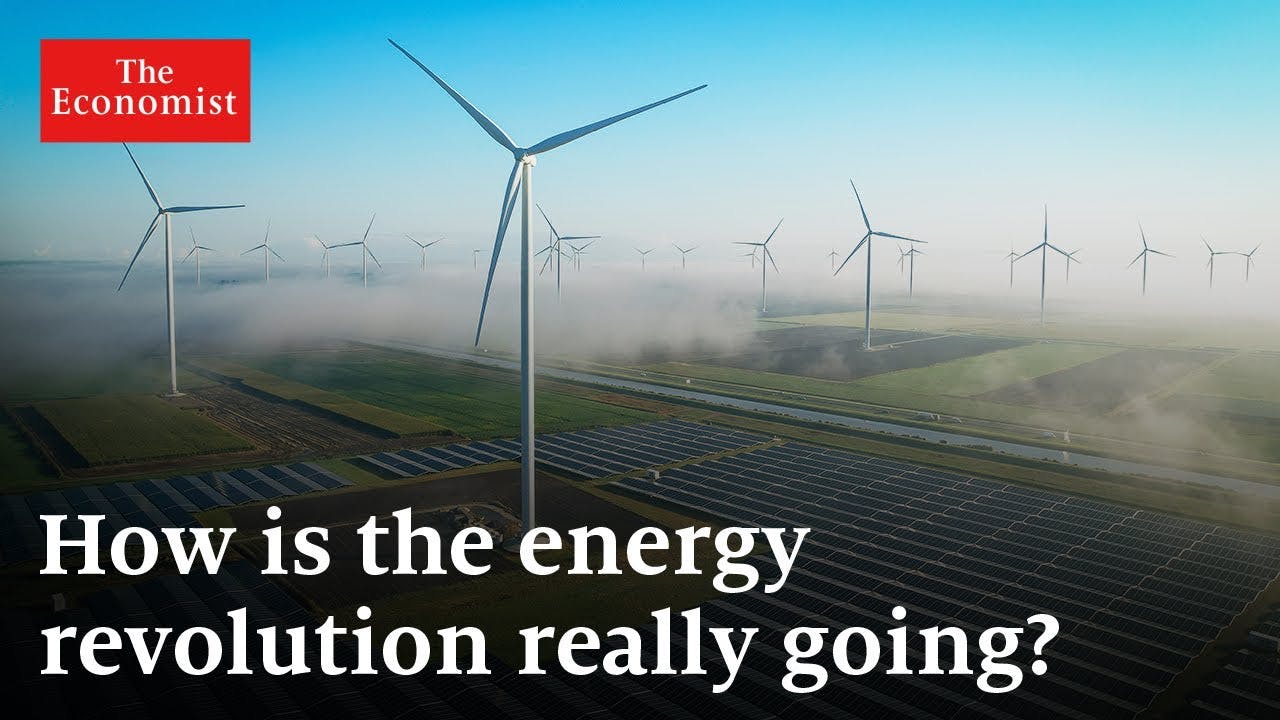How green is the energy revolution really?
27 Nov 2023 (2 years ago)

How did the war in Ukraine impact the green revolution? (51s)
- Climate activists were frustrated by the slow pace of transition from fossil fuels to clean energy.
- They used direct action tactics to draw attention to the urgency of abandoning fossil resources by 2030.
- Europe responded to the energy crisis triggered by the Russian invasion of Ukraine by leaning back on fossil fuels.
- Russia had supplied Europe with a significant portion of its gas and oil, prompting a return to fossil fuels when supplies were cut.
- This reliance on fossil fuels saw a spike in prices, with coal, oil, and gas profits soaring.
- However, this reliance raised concerns about whether the world would effectively transition to green energy.
Why is green energy booming in unlikely places? (5m50s)
- Despite setbacks, the energy transition accelerated, and investment in renewable energy increased significantly.
- In 2022, investments in solar and wind overtook investments in oil and gas for the first time.
- The war in Ukraine might have expedited the green energy transition by making fossil fuels more expensive and renewables more appealing.
- Governments began investing heavily in renewable energy to enhance energy security and reduce dependence on hostile states.
- The Inflation Reduction Act in the U.S. created new green manufacturing hubs, signaling a major global shift even in historically fossil fuel-dependent regions.
Rewiring the world for net zero (8m31s)
- Major updates in infrastructure and a reduction in bureaucratic red tape are necessary to support renewable energy integration.
- London is undergoing a major grid overhaul to enable more efficient use of green energy.
- The world will need much more electricity to reach Net Zero goals, requiring grid reconfiguration.
- International grid interconnections are essential for sharing electricity across borders.
- There is a broad recognition that connecting grids to accommodate renewable energy is a crucial step in the clean energy transition.
Is nuclear energy making a comeback? (11m40s)
- Nuclear power is being reconsidered due to its low carbon emissions and ability to provide a consistent base load power.
- Britain is building Hinkley Point C, their first new nuclear power plant in decades, aimed to provide 7% of the UK's power.
- Despite nuclear power's unpopularity and high costs, the war in Ukraine has highlighted its potential contribution to energy independence.
- Nuclear projects in the West face challenges in regaining lost construction expertise and are currently over budget and behind schedule.
Texas: the anti-green future of clean energy (14m20s)
- Despite skepticism about climate change in Texas, green jobs and industries are expanding rapidly.
- The profitability of renewable technologies like wind turbines is transforming the state's economic landscape.
- EV conversion for muscle cars demonstrates a niche adaptation to the surge in the electric vehicle market.
- The EV market contributes to a more sustainable future, with a quarter of new car sales predicted to be electric by 2025, rising dramatically by 2040.
- Investment in electrified transport is surging, matching levels of capital invested in wind and solar energy.